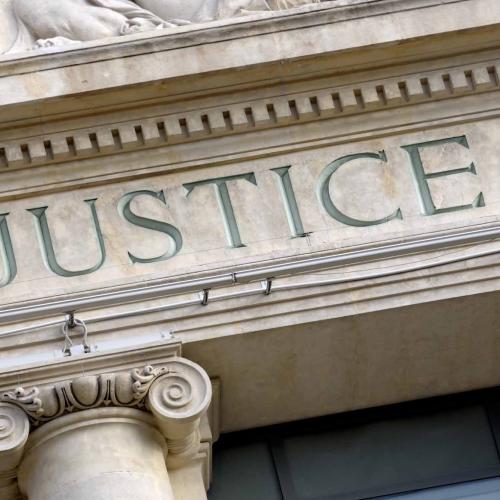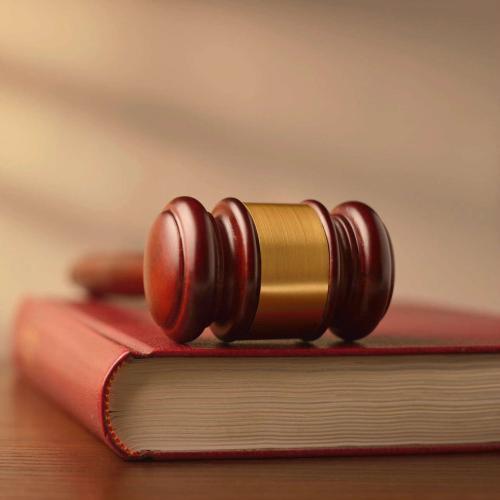The legal case of Giglio v. United States, decided by the U.S. Supreme Court in 1972, is a landmark decision that significantly expanded the scope of the Brady Doctrine, originating from the case of Brady v. Maryland (373 U.S. 83, 1963). This article provides a thorough examination of the Giglio decision, its context within the broader framework of criminal procedure, and its enduring impact on the disclosure obligations of the prosecution.
The discussion will explore the facts of the case, the legal questions it presented, the decision of the Supreme Court, and the subsequent jurisprudential developments. Particular attention will be paid to how Giglio built upon the foundation laid by Brady and contributed to the evolution of the legal landscape concerning prosecutorial duties and defendants' rights.
Case Overview: Giglio v. United States
Facts of the Case
In Giglio v. United States, the defendant, John Giglio, was convicted of passing forged money orders. During the trial, a key witness for the prosecution, a co-conspirator, testified against Giglio. However, it was later revealed that the prosecution had failed to disclose an important piece of information: the witness had been promised immunity in exchange for his testimony.
This non-disclosure was brought to light post-conviction, raising significant questions about the fairness of the trial and the integrity of the judicial process. Giglio appealed his conviction, arguing that the prosecution's failure to disclose this information violated his right to due process.
Legal Issues
The primary legal issue in Giglio was whether the prosecution's failure to disclose the promise of immunity to the key witness constituted a violation of Giglio's due process rights under the Fifth and Fourteenth Amendments. The case also questioned the responsibilities of the prosecution to ensure a fair trial by disclosing all evidence that might be favorable to the defense.
The Supreme Court's Decision
The U.S. Supreme Court, in a 7-2 decision, ruled in favor of Giglio, holding that the prosecution's failure to disclose the promise of immunity to its key witness was a violation of due process. The Court extended the principles established in Brady v. Maryland, affirming that the suppression of evidence favorable to the accused, whether intentional or not, is a violation of due process if the evidence is material to either guilt or punishment.
The Brady Doctrine: Origins and Evolution
The Super-Precedent: Brady v. Maryland
The Brady Doctrine originates from the seminal case of Brady v. Maryland, where the Supreme Court established that the prosecution must disclose to the defense any evidence that is material to guilt or punishment. The doctrine is rooted in the principles of fairness and justice, ensuring that the defendant has access to all relevant information that might affect the outcome of the trial.
Importance of the Brady Doctrine
The Brady Doctrine is a cornerstone of criminal procedure, shaping the obligations of the prosecution and the rights of the defense. It underscores the ethical duty of prosecutors to seek justice rather than merely secure convictions. The doctrine aims to prevent miscarriages of justice by ensuring that all material evidence, particularly exculpatory evidence, is disclosed to the defense.
Extension Through Subsequent Cases
Following Brady, numerous cases have tested and refined the doctrine, addressing various aspects of what constitutes material evidence and the obligations of the prosecution. The doctrine has been instrumental in cases involving prosecutorial misconduct, wrongful convictions, and the broader discourse on defendants' rights.
Giglio v. United States: Extending the Brady Doctrine
Impact of the Giglio Decision
The Giglio decision is significant because it expanded the Brady Doctrine by clarifying that the prosecution's duty to disclose extends to all evidence that might impeach the credibility of a witness. The Supreme Court emphasized that promises made to witnesses by any member of the prosecution team must be disclosed, as such information is critical to ensuring a fair trial.
Materiality and the Impeachment of Witnesses
The ruling in Giglio established that evidence affecting the credibility of a witness is considered material if there is a reasonable probability that, had the evidence been disclosed, the result of the proceeding would have been different. This broadened the scope of what is considered material under the Brady Doctrine, encompassing not just direct evidence of guilt or innocence but also evidence that could undermine the credibility of key witnesses.
Prosecutorial Responsibilities Post-Giglio
After Giglio, the responsibilities of prosecutors became more stringent. They are now required to disclose any and all information that could be favorable to the defense, including evidence that might impeach the credibility of a prosecution witness. This duty is not limited to the prosecutor in charge but extends to the entire prosecution team, including police officers and other investigative personnel.
Continuing Legal and Ethical Debates
The Giglio ruling has fueled ongoing debates about prosecutorial ethics and the balance between the pursuit of justice and the rights of the accused. While the decision strengthened defendants' rights, it also highlighted the complexities of ensuring compliance with these legal standards in practice. Cases of prosecutorial misconduct continue to surface, challenging the effectiveness of the Brady and Giglio standards in preventing injustice.
Giglio v. United States is a pivotal case in the landscape of American criminal procedure, marking a critical expansion of the Brady Doctrine. By extending the requirement of disclosure to include impeachment evidence, the Supreme Court reinforced the principle that fairness and transparency are fundamental to the integrity of the judicial process. The case has had a lasting impact on the obligations of prosecutors and the rights of defendants, continuing to influence legal standards and ethical considerations in the criminal justice system.



